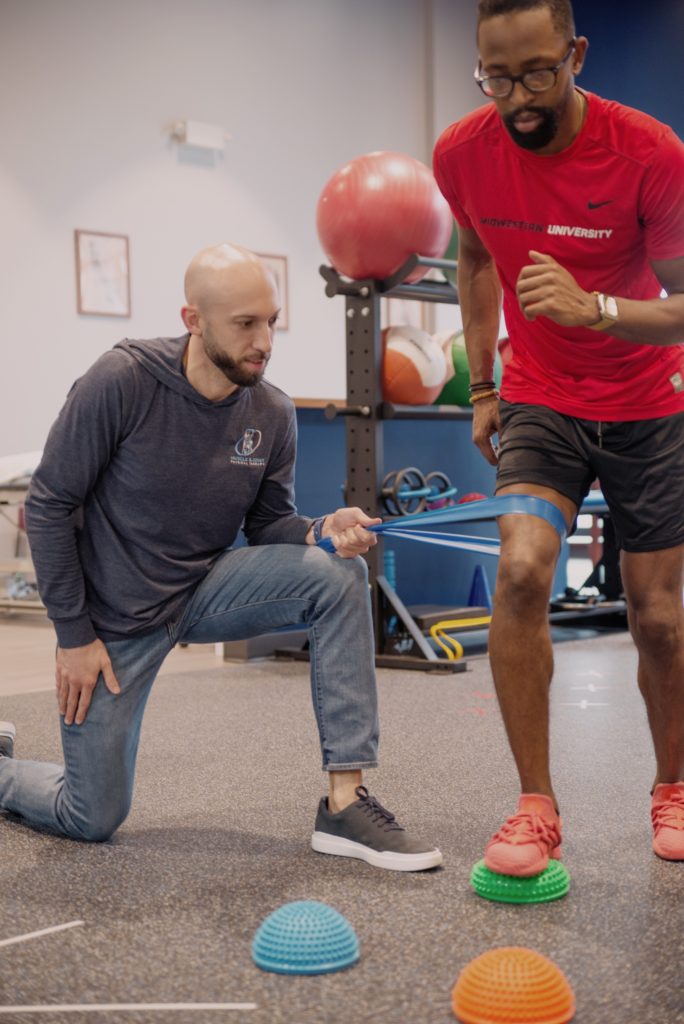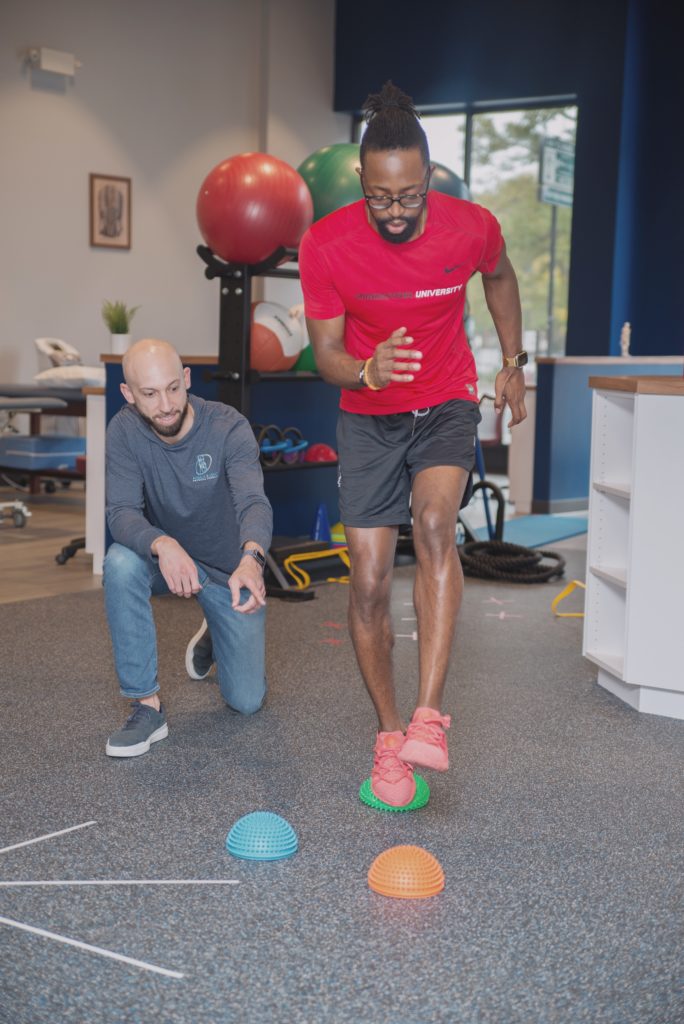Exercise Programs
What is an Exercise Program?
Exercise programs are an integral part of physical therapy and the rehabilitation process. It encompasses a variety of exercises and activities in order to promote strength, improved range of motion, increased neuromuscular control, decrease nerve tension, relieve pain, and reduce inflammation. Each individual is created a unique exercise program, by their therapist, based on their individual needs and deficits. These programs are then progressed throughout the rehabilitation process until the patient’s goals are achieved and the individual can return to their
full prior level of function. Each person should perform their exercise program both at their physical therapy sessions as well as at home.
Why is it important to do my exercise program at home?
Literature shows that patients who adhere to their prescribed exercise program are significantly more likely to achieve their goals and demonstrate a greater improvement in function compared to those who do not. Furthermore, patients who do not adhere to their exercise program have an increased risk of recurrent injury/flare ups. They have less positive outcomes in the long term.


Benefits of exercise programs include:
- When supporting and foundational exercises are performed at home, it allows for higher level activities and interventions to be completed during the therapy session. Therefore, you can progress faster through the rehabilitation process.
- Exercise programs can lead to a more active lifestyle or progress an individual’s current routine of physical wellness by adding new exercises.
- Exercise programs can help promote positive habits.
If there is ever a question about the exercise program, patients should not hesitate to reach out to their therapist. Exercises and activities can always be modified to improve form, decrease pain, and increase individual comfort and adherence.
- Di Fabio RP, Mackey G, Holte JB. Disability and functional status in patients with low back pain receiving workers’ compensation: a descriptive study with implications for the efficacy of physical therapy. Physical Therapy. 1995 Mar 1;75(3):180-93.
- Pinto BM, Rabin C, Dunsiger S. Home‐based exercise among cancer survivors: adherence and its predictors. Psycho‐Oncology: Journal of the Psychological, Social and Behavioral Dimensions of Cancer. 2009 Apr;18(4):369-763.
- Karnad P, McLean S. Physiotherapists’ perceptions of patient adherence to home exercises in chronic musculoskeletal rehabilitation. International Journal of Physiotherapy. 2011 Jun;1(2):14-29
- Wright BJ, Galtieri NJ, Fell M. Non-adherence to prescribed home rehabilitation exercises for musculoskeletal injuries: the role of the patient- practitioner relationship. J Rehabil Med, 2014, 46: 153–158
